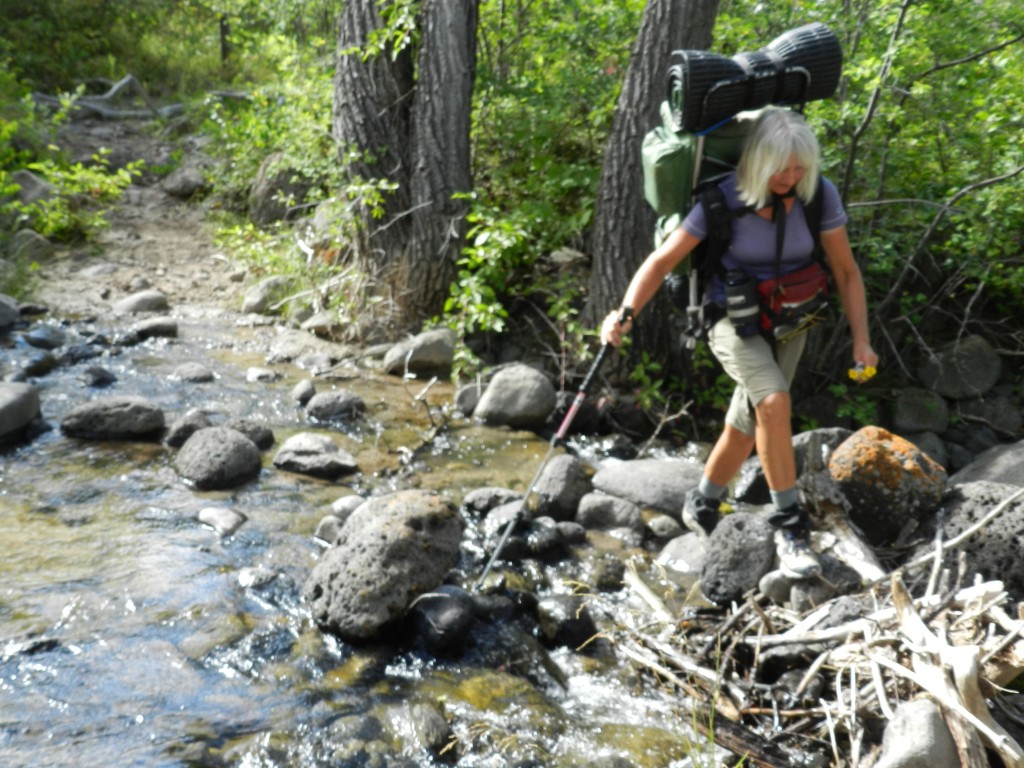Contrast that with my oldest brother Pete who also succumbed to Alzheimer’s. He was a world renowned mountain climber back in the fifties and sixties and maintained an active lifestyle throughout. He has spent the last year confined to a wheelchair and likely will pass away at a younger age than our Mom.
Considering what has been revealed about the damaging side effects of donepezil (Aricept), perhaps that alone accounts for the difference. Mom did not take that medication; I don’t think it existed back then. Yet it is also true that Alzheimer’s strikes everybody differently.
Cindy is still in good condition, having had more strenuous exercise in her middle age than even my brother Pete. I’ve already divulged how our walk across the country that started almost four years ago helped to reverse Cindy’s decline. I’ve also revealed that our hike of the Pacific Crest Trail, begun less than a year ago, failed to have a similarly dramatic effect.
I cannot add much about exercise at this point that I have not already covered over the past year. I cannot guarantee exercise is the magic treatment that will cure everybody. Still, as I read all the articles on Alzheimer’s and brain health sent to me by Google Alerts exercise stands out as the one constant.
Yes, you should probably begin with diet in regards to your health. The body has amazing recuperative powers, but you need to provide the right materials. Yet people differ in their conditions and afflictions, what constitutes precisely the best diet for one differs from that for another. What remains universally true is that exercise is needed to regenerate brain tissue. Exercise is the blender that mixes the ingredients you provide through diet into the best health smoothie for yourself.
Regenerating your brain tissue is not the same as improving your cognitive function. You either need the right kind of exercise to enhance cognitive function, such as dancing, or other activities that serve such a purpose. What constitutes the right kind of exercise for improving cognitive function?
Dancing continually engages the mind more than something like bicycling, where the mind sometimes can be placed on “autopilot.” Other exercises that similarly engage the mind include various forms of yoga and martial arts. Many sports engage the mind, though many sports also become difficult for the older body to pursue.
Hiking would seem to be in the category as bicycling or swimming where the mind can be put on autopilot. Yet Cindy did improve her cognitive function while we hiked the American Discovery Trail and I think there are good reasons for that. Vitamin D may be the most important of all vitamins for brain health and continual exposure to the sun provides the best means for the body to acquire that. Think twice before applying too much sunscreen. Rugged wilderness trails engage the mind in a similar fashion as dancing, requiring nimble footwork at times to negotiate the obstacles along the way. For someone like Cindy, hiking also continually engages the mind through the beauty observed along the way.
Unfortunately, once Alzheimer’s advances far enough you cannot regenerate brain tissue faster than it is being degraded. Still, exercise remains the universal constant for improving your health in general as well as your quality of life. Our bodies did not evolve for a sedentary life and being civilized does not change that.


I love the above photo of Cindy easily maneuvering the the rocky terrain, something I have a hard time doing now (though once upon a time I could manage). I like your reference to cognitive vs autopilot. Makes sense. Cindy must be a very special lady.
Yes, Peggy, that shot was from the American Discovery Trail journey. Unfortunately, she’s lost some of that agility now. Say “hi” to Anneke for me. I’m in frequent contact with two of her classmates, Dan Hayhurst and Colin Coan.